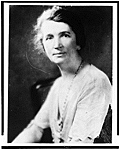Posted on October
12, 2021
Abortion Vs. English
Libs do to language what they do to the
unborn
by
Daniel
Clark
In response to the Texas heartbeat law, which prohibits
most abortions in that state, the House of Representatives passed something
called the Women's Health Protection Act of 2021, a bill that, it should
be needless to say, has got nothing in the world to do with women's
health. Given the pro-abortion
movement's characteristic hatred for the concept of objective truth, it should
come as no surprise that this piece of legislation dismembers the English
language in a macabre metaphor for what it would do to tiny human beings.
 The
bill doesn't even complete its first sentence before it stops saying what it
means. It begins by identifying itself
as, "An Act ... To protect a person's ability to determine whether to continue or
end a pregnancy, and to protect a health care provider's ability to provide
abortion services." Naturally, its
authors don't want to call it an act to protect the ability to kill an unborn
human child, so it euphemizes this act into that of ending a pregnancy. Abortion is not just the ending of a
pregnancy, though. If it were merely
that, it would be no more objectionable than a C-section. All pregnancies end,
in most cases by giving birth. What this
bill seeks to protect is the ending of a pregnancy artificially, by way of
homicide.
The
bill doesn't even complete its first sentence before it stops saying what it
means. It begins by identifying itself
as, "An Act ... To protect a person's ability to determine whether to continue or
end a pregnancy, and to protect a health care provider's ability to provide
abortion services." Naturally, its
authors don't want to call it an act to protect the ability to kill an unborn
human child, so it euphemizes this act into that of ending a pregnancy. Abortion is not just the ending of a
pregnancy, though. If it were merely
that, it would be no more objectionable than a C-section. All pregnancies end,
in most cases by giving birth. What this
bill seeks to protect is the ending of a pregnancy artificially, by way of
homicide.
The "findings" section of the bill begins by saying,
"Congress finds the following ... Abortion services are essential to health
care." Really? Congress found that? Where?
If this were true, there would be no health care without abortion. Obviously, people were able to obtain health
care before abortion was legalized, so what is the basis for this
"finding?" Abortion serves no medical
purpose. It treats no illness or
injury. In fact, when an abortion is
said to have been "botched," that generally means that all parties involved
have come out alive. The killing of one
of those parties is not "health care," nor can it be "essential" to the same.
What is this word "services" doing in there,
anyway? This bill is not about providing
some unidentified services that are ancillary to abortion. The use of the term "abortion services" is
pure semantic flim-flammery, designed to turn the act of abortion into a
modifier, for a surrogate noun with no particular meaning. People do not talk like this in reference to
legitimate medical procedures. Nobody
provides hip replacement services, for instance.
The fourth, fifth and sixth clauses in the "findings"
section discuss something called "reproductive justice," which is both
medically and legally meaningless.
"Reproductive justice requires every individual to have the right to
make their own decisions about having children regardless of their
circumstances and without interference and discrimination," it says. The disdain for truth involved in assigning
the plural pronoun "they" to an individual is a microcosm of the absurdity of
this concept. There are lots of people
who would like to reproduce but are physically incapable of doing so. Are they victims of reproductive injustice,
because they cannot simply decide to reproduce?
If so, how is that injustice to be remedied? We probably don't want to know.
It goes on to make the nonsensical declaration,
"Reproductive justice is a human right," while making so serious effort to
define the term. Is it reproductive
justice for an already reproduced human being to be protected by law? If not, that's only because the authors of
the bill are reserving the power to redefine the term when and how they see
fit. They would, no doubt, conclude that
there is no human right not to be deprived of life without due process of law,
as enumerated in the Fifth and Fourteenth Amendments of our Constitution.
 "Reproductive
justice seeks to address restrictions on reproductive health, including
abortion, that perpetuate systems of oppression, lack of bodily autonomy, white
supremacy, and anti-Black racism." This
can only be identified as a "finding" if the place it was found was in the
mission statement of the student Marxist club at Wellesley. This is worse than just your garden variety
liberal collegiate mindbarf, however.
It's a bald-faced lie to claim that white supremacists favor, or
otherwise benefit from, a decline in the frequency of abortion among
blacks. As long as the House Democrats
are busy "finding" things, they might try looking up Planned Parenthood, the
Twentieth Century eugenics movement, and Margaret Sanger's "Negro Project."
"Reproductive
justice seeks to address restrictions on reproductive health, including
abortion, that perpetuate systems of oppression, lack of bodily autonomy, white
supremacy, and anti-Black racism." This
can only be identified as a "finding" if the place it was found was in the
mission statement of the student Marxist club at Wellesley. This is worse than just your garden variety
liberal collegiate mindbarf, however.
It's a bald-faced lie to claim that white supremacists favor, or
otherwise benefit from, a decline in the frequency of abortion among
blacks. As long as the House Democrats
are busy "finding" things, they might try looking up Planned Parenthood, the
Twentieth Century eugenics movement, and Margaret Sanger's "Negro Project."
"The terms 'woman' and 'women' are used in this bill
to reflect the identity of the majority of people targeted and affected by
restrictions on abortion services, and to address squarely the targeted
restrictions on abortion, which are rooted in misogyny." This is intended to be a law, remember, not a
brown-nosing freshman term paper. It
serves no purpose to make a sweeping, opinionated, and demonstrably inaccurate
generalization about the motives of the opposition. Furthermore, it's a thoroughly documented
fact that misogynists love abortion (See: Bill Clinton, Ted Kennedy,
Hugh Hefner, Larry Flynt, Howard Stern, Norman Mailer, Harvey Weinstein,
etc.). But what place has this
discussion in a piece of legislation?
"However, access to abortion services is critical to
the health care of every person capable of becoming pregnant," it
continues. Does it really mean to say
that people who are not women may become pregnant? Let's find out. "This act is intended to protect all people
with the capability for pregnancy -- cisgender women, transgender men,
non-binary individuals, those who identify with a different gender, and others
-- who are unjustly harmed by restrictions on abortion services." For those who have had trouble keeping track,
"transgender men" are women who present themselves as men, and not the other
way around. "Non-binary individuals,"
like those who identify with a different gender, may or may not be women, but
if they are, they choose not to identify as such. So, yes, the legislation is saying that
people who are not women may become pregnant, but only after it redefines the
word "women" for that purpose. If the
term "women" were simply being used in this bill to reflect women, there would
be no need to add a clause explaining it.
Later on, the bill prohibits the imposition of
requirements on abortion clinics that are "not imposed on facilities or the
personnel of facilities where medically comparable procedures are performed." How this is even expected to be enforceable
should have been the subject of hours of floor debate by itself. An abortion accomplishes nothing medically. It is a procedure in which success is defined
by the ability to produce a human corpse.
Any legislator who voted for this bill needs to be asked, on camera, to
identify a procedure that is medically comparable to abortion, and explain the
ways in which the two are alike.
If they are relying on the "only tissue" argument, by
which they pretend that a baby in the womb is akin to an inflamed appendix,
that could not be easier to refute.
There's a reason the Texas statute they oppose is called the "heartbeat
law." That's because it prohibits
abortions once the unborn child is old enough to have a detectable
heartbeat. What, exactly, are the
"comparable procedures" to one that kills a living human being with a beating
heart?
In order to defend the act of abortion, its advocates
have created a whole parallel linguistic dimension, in which words suddenly mean
things that they had never meant before.
In doing so, they announce to all who are willing to listen that they
fear the truth; for what is truth, but the accurate application of language? When the dismemberment and killing of a tiny
human being with a beating heart becomes "women's health protection," it tells
us not only that supporters of the bill are in the wrong, but that they know
it.
The Shinbone: The Frontier of the Free Press